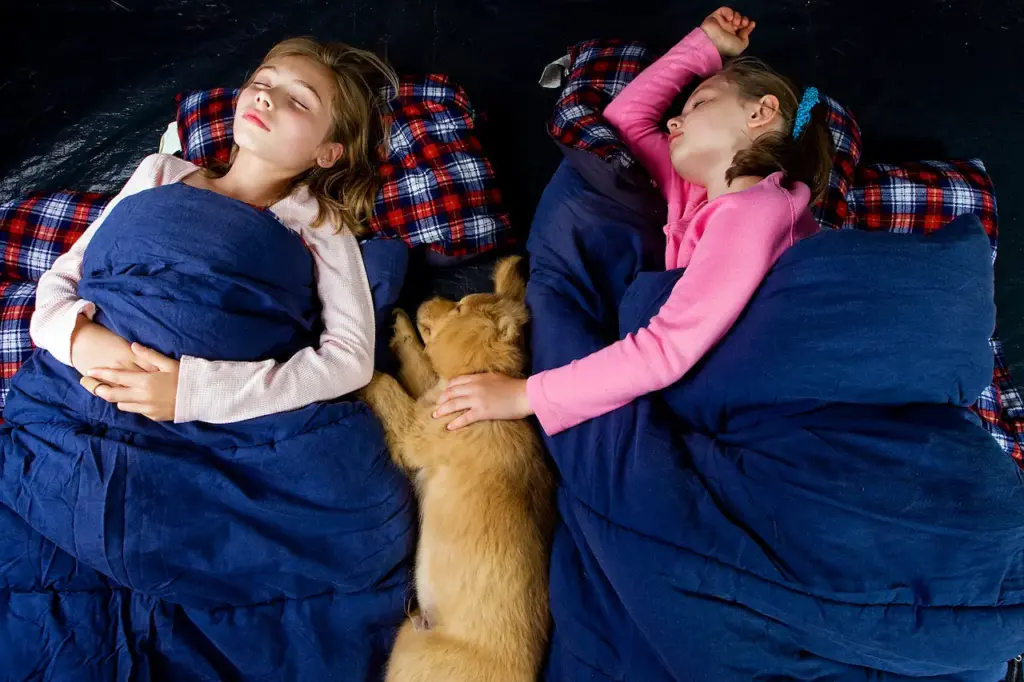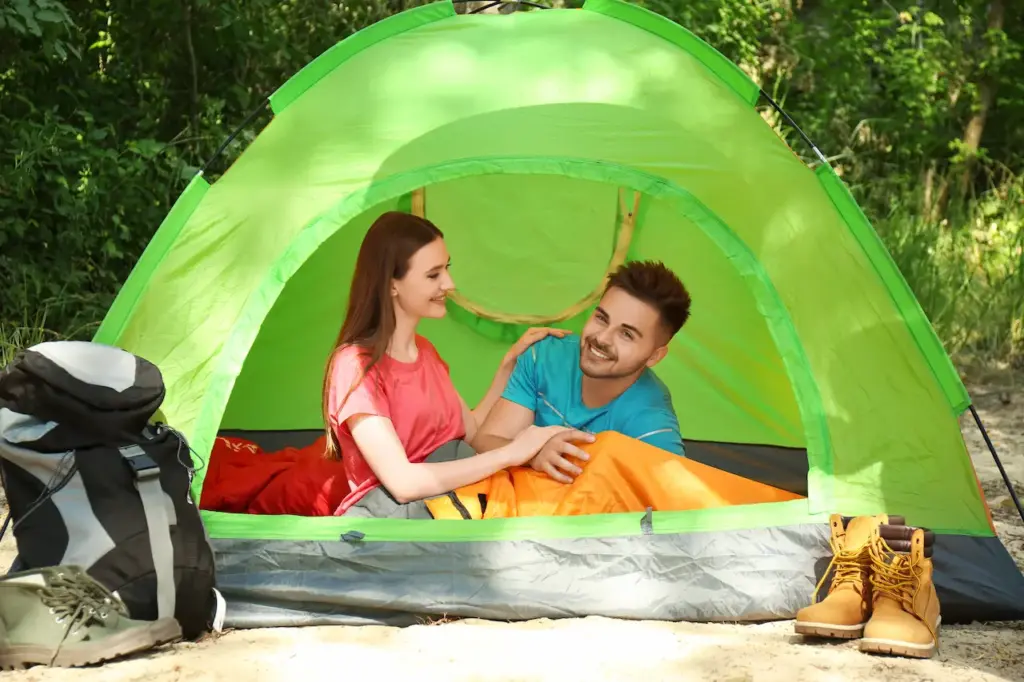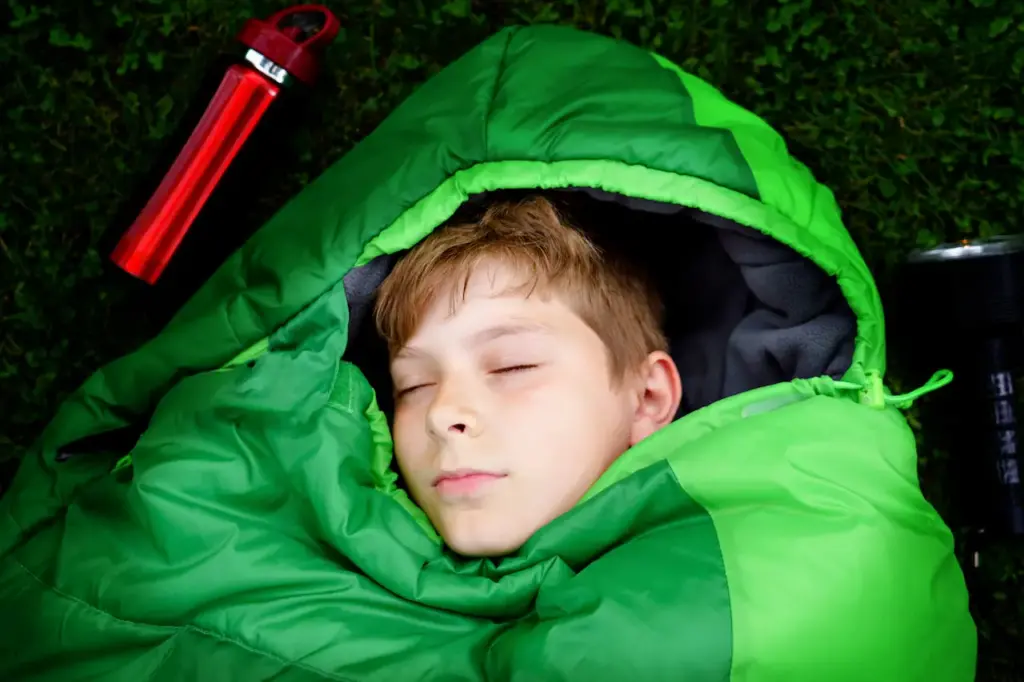Ten Tips for a Better Sleep While Camping
You don’t have to sacrifice quality sleep to be close to nature if you decide to go outdoors. Here are the Ten Tips for a Better Sleep While Camping you can prepare for an evening under the stars by reading the tips listed below.
Tips to Get a Good Night’s Rest While Camping

You can start exploring the outdoors if you are new to camping. The resources at the campground you are considering will be a great place to start. There are often posted rules and regulations on where to set up camp. Camping in an existing site is a good way to ensure you don’t break any rules. It’s important to be informed so that you can sleep well.
2. Where to pitch your tent
It’s time to choose a spot to camp. Avoid setting up camp too close to water bodies, trails, or other campers who are not part of your group. You don’t want to interfere with anyone else’s enjoyment of the outdoors by crowding them or blocking their view. You can also reduce the noise you hear while sleeping by being aware of your surroundings. Avoid camping too near ledges, which could result in a dangerous fall during the night.
Avoid sleeping on uneven, flat ground. This will make it easier to remove rocks, twigs and other debris which could disturb your sleep. Avoid sleeping directly under any branches or trees that may brush against your tent in the middle night. If the trees are a favourite roost of birds and other wildlife, camping under them could make for a colourful sunrise. Position your tent and bedding above your body if the ground is slanted but otherwise meets all the criteria for a perfect campsite.
You might consider putting a tarp down on the ground before you pitch your tent to protect you from the weather. You wouldn’t want to be soaked in the morning from a sudden rainstorm.
3. Select the right sleeping bag
You will sleep more comfortably if you choose the right sleeping bag. You can choose between two main designs:
- Car camping sleeping bag is wide and rectangular. It can be unzipped to become a blanket. They are not designed to retain heat so they’re best used for camping or glamping in hotter conditions.
- Backpacking Sleeping Bags are light, making them perfect for adventurers who trek far to find a suitable campsite. These bags are mummy-shaped, have a hood, and are often filled with down. This helps to retain heat so that you can stay warm when out in the cold.
If the temperature falls lower than forecast, it’s vital to ensure that your sleeping bag can withstand the colder temperatures.
If the standard sleeping bag does not meet your needs, there are other options, including oversized sleeping bags that provide more room for breathing, sleeping bags shorter than usual for children, or sleeping bags you can wear while you’re moving around your campsite.

4. Bring extra bedding
You can add a sleeping mat to your sleeping bag for additional cushion. Sleeping pads can be designed in a variety of ways.
- Inflatable sleep pads are easy to transport and provide support throughout the night. Check your sleeping pad for leaks regularly to avoid ruining your next camping trip.
- Self Inflating Sleeping Pads combine the technologies of inflatable sleeping pads with closed-cell sleeping pads. The pad self-inflates from the closed cell foam when opened. Additional air can be added to the pad for additional comfort. These sleeping pads are stronger than inflatable ones, but they can still tear.
- Closed-cell sleeping pads are made of dense foam and contain tiny air cells inside that make them light. It is bulky and difficult to carry because of the dense foam. The stiff material makes them less comfortable.
Not sure which sleeping pad will work best for you? Check out the options. You can bring your pillow if extra support is required. If space is an issue, however, then you might want to consider using an inflatable pillow.
5. Block any noise
Sleeping outside may not always be easy, and it might not be as peaceful or comfortable as sleeping in your bed. Camping outside means you will hear new sounds, which may keep you awake. Earplugs help. If you forgot to bring any earplugs, you can download a white noise app on your phone. This will create a constant stream of sound to help block out unanticipated nature sounds. Many of these apps have a timer that turns them off at night to save battery life.
You may also consider the type of light in your area and how that might affect your sleep. Bring an eye mask if the light bothers you.
6. Start winding down and prepare for the lights to go out
If you’re worried about being too cold, you can also pack extra blankets or accessories like hats, scarves and gloves to keep warm. You can also bring extra blankets and accessories such as hats, gloves, and scarves to help you stay warm through the night.
Prepare some soothing tea and enjoy it around the campfire before you go to bed. Avoid overindulging, even if you’re on vacation and hear the call for a drinking contest. Alcohol can make you tired, but it will disturb your sleep. and caffeine will also disrupt your sleep.
7. Take some time to use the bathroom
You should use the bathroom at least one time before going to bed if you are a frequent waker. You should always have a light nearby if you are unable to make it through the evening.
8. Goodbye, bugs
Pack extra mosquito netting or repair any tears before you go. Use citronella and lavender sprays to keep mosquitoes out of your sleeping area. Spray yourself with bug spray just before going to bed to avoid becoming a midnight meal.
By keeping your campsite clean, you can also keep pests away. For safety reasons, your campsite may have regulations about food storage and trash removal. These should be followed. If you’re camping in an area where there are bears, it could be dangerous to keep food in your tent or wear clothing that has food residue. What a rude awakening!

9. Keep to your routine
You may find it tempting to stay up late telling ghost stories by the campfire. But you will regret not taking a great trip because of your poor sleep schedule. You should try to keep your sleep routine as consistent as possible to help you fall and stay asleep. Even if you do not feel tired, begin winding down the same way you would at home. Continue your normal routine, such as brushing your teeth and going to the bathroom. This will help your body learn the bedtime ritual.
10. Dress up for the night
Wearing the right sleepwear is essential for a camping trip, regardless of whether it’s hot or cold outside. As you lay down to sleep, drape extra coverage over your sleeping bag instead of wearing bulky clothing. Bulky items inside your sleeping bag can reduce its ability to retain body heat. The ideal clothing is dry, comfortable and clean. Don’t sleep in sweaty clothes. The heat rating of a sleeping bag is based on a person wearing long underwear, socks and shoes. This should be taken into consideration when packing for your camping trip.




